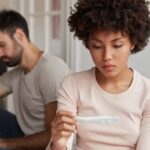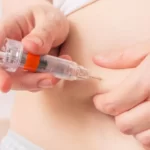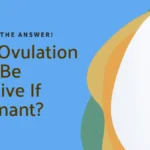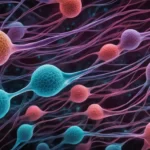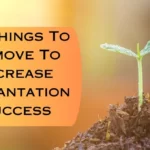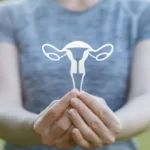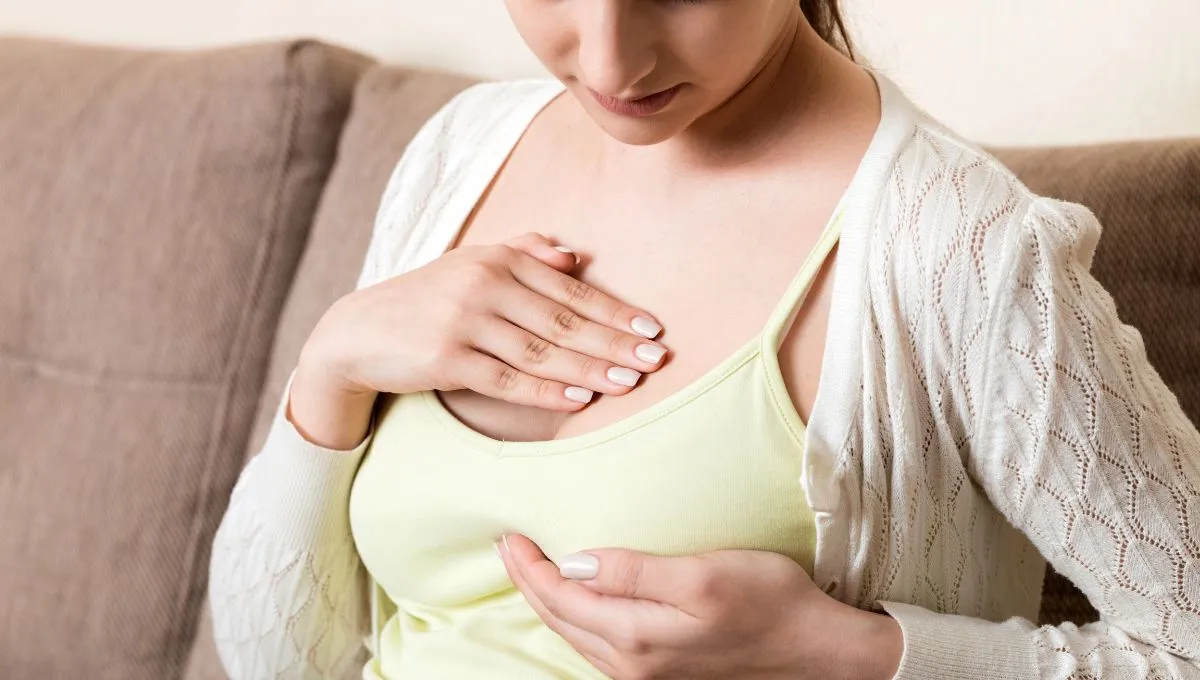
Many women experience breast tenderness or soreness after ovulation each month. For some, it’s one of the most noticeable early signs of pregnancy. So when your breasts aren’t sore in your normal premenstrual timeframe, it’s understandable to worry something may be wrong or different this cycle.
This article will explain the common reasons for breasts not sore after ovulation, why you may not experience it some months, when sore breasts warrant medical attention, and some tips for managing symptoms naturally and emotionally. We’ll also outline some key points on determining when to see a doctor about absent or unusual breast changes.
While sporadic breast soreness is normal, understanding your individual menstrual cycle patterns is key. This guide aims to educate on both regular hormonal shifts and potential abnormalities, to help you decipher what’s ordinary versus what requires further medical care.
Related: Breastfeeding in Public: What You Need to Know
What Causes Breast Soreness After Ovulation?
Breast soreness after ovulation is caused by hormonal changes that occur during the luteal phase of your menstrual cycle.
After ovulation, your ovaries begin producing more progesterone and estrogen to prepare for a potential pregnancy. The rising levels of these hormones can cause fluid retention and swelling in the breast tissue, which leads to tenderness and soreness.
Specifically, it’s the increase in progesterone after ovulation that is responsible for breast soreness. Progesterone helps thicken the lining of the uterus, causing breast cells to swell as a side effect. The breasts become more sensitive and painful as they retain more fluid.
Estrogen levels also rise significantly after ovulation. Estrogen stimulates the milk ducts in the breasts to grow and develop. This can lead to additional swelling, pain, and sensitivity.
The combination of elevated estrogen preparing the breasts for milk production and increased progesterone causing fluid retention is what leads to the bothersome post-ovulation breast pain that many women experience. Understanding these hormonal mechanisms can help explain why breast tenderness is linked to the luteal phase.
Related: 6 Hands-Free Breast Pumps: Mom Approved!
Why Might Be My Breasts Not Sore After Ovulation?
It’s important to understand that hormone fluctuations are normal from cycle to cycle. The primary hormone that causes breast tenderness after ovulation is progesterone. Some months, your progesterone levels may not get high enough to stimulate breast soreness.
There are a few reasons why progesterone might be lower in a given cycle:
- The corpus luteum may not produce as much progesterone. The corpus luteum is the structure left behind after ovulation that secretes progesterone. Its function and hormone production can vary.
- You may have ovulated from the left ovary one month and the right ovary the next month. Studies show the right ovary is more efficient at producing progesterone in most women.
- Chronic stress can interfere with ovulation and corpus luteum function, resulting in lower progesterone.
- Medical conditions like hypothyroidism or polycystic ovarian syndrome (PCOS) can also impact progesterone levels and cause inconsistent breast soreness.
In summary, it’s very common for your body to have minor differences in hormone levels and ovulation patterns from one menstrual cycle to the next. As long as pregnancy tests are negative and you don’t have other concerning symptoms, try not to worry too much about a lack of breast soreness here and there. Monitor your cycles, but understand variability is normal.
Related: How Much Water To Drink When Breastfeeding?
When to Worry
If you are used to experiencing breast soreness after ovulation each cycle, and the soreness is suddenly absent, it may signal an underlying health condition. Here are some key things to be aware of:
- Absent or decreased breast soreness could indicate a problem with ovulation. If you aren’t ovulating regularly, it can impact your ability to get pregnant. Tracking your basal body temperature is one way to confirm ovulation at home.
- Hormonal imbalances like thyroid disorders, premature ovarian failure, and primary ovarian insufficiency can cause irregular ovulation and absent breast soreness. Blood tests from your doctor can diagnose these conditions.
- Breast cancer treatments that suppress estrogen can reduce or eliminate breast soreness during your cycle. Always report any unusual breast changes to your doctor promptly.
- Perimenopause is associated with irregular cycles and ovulation. Women in their late 30s/early 40s may notice their typical PMS symptoms decreasing, including breast tenderness.
- Stress, poor diet, excessive exercise, eating disorders, and rapid weight loss can disrupt ovulation and hormones. Breast soreness may lessen when the body is under strain.
Pay attention to any changes in your normal menstrual cycle. Tracking your periods, ovulation signs, and PMS symptoms can help identify issues early. Report persistent changes to your doctor, especially if you are trying to get pregnant. Investigating absent breast soreness can prevent many reproductive and hormonal problems down the road.
Related: How To Stop Baby From Biting While Breastfeeding?
Managing Breast Soreness Symptoms
Many women find that breast soreness around ovulation affects their daily life. While the soreness is usually mild, some months it can be more severe. There are a few options for managing breast tenderness and swelling during this time.
Over-the-Counter Pain Medication
Taking an over-the-counter pain medication like ibuprofen (Advil) or acetaminophen (Tylenol) can help reduce breast soreness. Follow dosage instructions and don’t exceed the daily limits. These medications work by blocking prostaglandins, which are hormones involved in inflammation and pain.
Wear a Supportive Bra
Wearing a properly fitted bra that provides compression and support can make a difference in breast pain levels. Avoid underwire or push-up bras that put more pressure on breast tissue. Opt for a soft, stretchy sports bra or bralette instead. You may want to go up a cup size if breasts are swollen.
Use Cold or Heat
Applying something cold or warm directly to the breasts may temporarily relieve soreness. A bag of frozen peas or an ice pack wrapped in a towel can provide cold therapy. For heat, try a microwavable heating pad or warm compress. Use whatever feels best in the moment.
Gentle Massage
Light, gentle circular rubbing or stroking of the breasts may ease some discomfort. Use an unscented lotion or oil to reduce friction. Apply minimal pressure and avoid massaging directly on lumps or bumps. Massage toward the lymph nodes under arms.
Relieving breast tenderness during ovulation may take some trial and error. Be patient and don’t hesitate to consult a doctor if symptoms persist or worsen. With the right approach, it is possible to manage sore breasts and keep symptoms from disrupting your daily routine.
Related: Breast Self-Exam: When to Worry, When to Seek Help
Lifestyle Changes
Making certain adjustments to your lifestyle can help relieve monthly breast soreness and tenderness. Here are some tips:
Diet Changes
- Avoid caffeine and other stimulants like coffee or energy drinks. Caffeine can make breast pain worse.
- Eat foods rich in vitamin E like almonds, spinach, and sunflower seeds. Vitamin E may help reduce breast pain.
- Increase intake of foods containing phytoestrogens like flax seeds, tofu, or soy milk. Phytoestrogens can help balance hormones.
- Reduce salt intake, as excess sodium can worsen breast swelling and tenderness.
- Drink plenty of water to avoid dehydration and flush out excess hormones.
Exercise
- Do low impact cardio like walking, swimming or cycling. This boosts circulation and helps reduce inflammation.
- Try chest opening yoga poses like Chest Expansion Pose or Cow Face Pose. These gently stretch the chest muscles.
- Strength training moves like push ups and chest presses can build up muscle and support breast tissue.
Massage
- Use circular motions to gently massage breasts. This increases blood flow and limbers up muscles.
- Apply warm compresses to the breasts to loosen muscles and improve circulation.
- Try over-the-counter topical pain relief creams containing ingredients like menthol or camphor. These can numb sore areas.
Making lifestyle changes like adjusting your diet, exercise routine, and using massage can help provide relief from monthly breast pain and tenderness. Work closely with your doctor to find the right solutions for you.
Related: Maternity Clothes Essentials: Elevate Your Expecting Style
Seeing a Doctor
It’s understandable to feel concerned if your breasts are suddenly not sore after ovulation like they usually are. While for many women this fluctuation is normal, it’s a good idea to make an appointment with your doctor if:
- Your breasts have never been sore after ovulation, even though soreness is otherwise a typical part of your cycle
- The lack of breast soreness has persisted for 3+ cycles in a row
- You have other symptoms like abnormal discharge or bleeding that concern you
At your appointment, your doctor will likely ask about your cycles, any changes you’ve noticed, and other symptoms. They may run some tests like:
- A pregnancy test to rule out pregnancy as the cause
- Bloodwork to check hormone levels like estrogen, progesterone, and HCG
- An ultrasound to look at your ovaries and uterine lining
Based on your symptoms and test results, some possible treatment options could include:
- Hormone therapy – such as birth control pills, to regulate your cycle if needed
- Medication – such as NSAIDs temporarily to manage breast pain
- Supplements – like vitamin B6 or evening primrose oil which may help for some women
Your doctor can help determine if there’s an underlying cause for your changes in breast soreness that needs to be addressed. Most of the time though, it ends up being normal hormone fluctuations. But it’s always best to get checked out for peace of mind. Let your doctor know if the lack of soreness after ovulation continues or you have any other concerns.
Related: Can A Pregnant Woman Go To A Funeral
Alternative Therapies
Some women find relief from monthly breast soreness through alternative therapies like acupuncture, supplements, and herbs.
Acupuncture
Acupuncture involves inserting thin needles into specific points on the body. Some studies have found that acupuncture can reduce breast pain and tenderness associated with the menstrual cycle. The needles may help relieve congestion in the breasts by improving circulation. Acupuncture also activates the release of endorphins, which are natural pain-relieving chemicals in the body.
Regular acupuncture sessions over the course of several months may be needed to experience the full effects. Be sure to see a licensed acupuncturist to receive safe and effective treatment.
Supplements
Certain supplements may help minimize breast pain related to hormonal fluctuations.
Evening primrose oil contains essential fatty acids that may stabilize hormone levels and decrease cyclical breast pain. Vitamin E is an antioxidant that may also alleviate soreness.
Magnesium, vitamin B6, and calcium supplements may further assist by promoting smooth muscle relaxation and fluid balance in breast tissue. Always consult your doctor before starting any new supplements, especially if you have an underlying medical condition.
Herbs
Some women find herbal remedies beneficial for relieving breast tenderness and swelling.
Dandelion root and chasteberry contain phytoestrogens that may stabilize hormones. Ginger, turmeric, and flaxseed also have anti-inflammatory properties that could alleviate breast soreness and pain.
Sipping herbal teas with anti-inflammatory ingredients like green tea, peppermint, or chamomile may provide mild relief as well. As with any herbal product, consult your physician first to make sure the remedies will not interact with any medications you are taking.
Related: Can You Eat Subway While Pregnant
Coping Emotionally
Not having sore breasts after ovulation can cause a range of difficult emotions. It’s important to acknowledge these feelings rather than bottling them up.
Validate and accept your emotions. Remind yourself that it’s normal to feel disappointed, frustrated, or sad in this situation. Give yourself permission to grieve the absence of this reassuring monthly symptom.
Journaling can help process these complex feelings. Write freely about your thoughts, worries, and emotions related to your breast symptoms. Let it all out on paper without holding back. Re-reading your journal over time provides perspective.
Online forums and in-person support groups allow connection with others in similar circumstances. You realize you’re not alone. Bonding over shared experiences creates solidarity and comfort.
Consider counselling if emotions become overwhelming. Therapists provide judgement-free support. Talking it out in a safe space eases the burden. Counselling equips you with healthy coping strategies.
While challenging, remember difficulty coping emotionally with breast changes is temporary. Have faith your strength and resilience will carry you through. Stay focused on self-care while remaining hopeful.
Related: Is Zipline Safe for Pregnant Women
Summary
After ovulation, your breasts may feel swollen, tender, or painful due to the changing hormones in your body, especially progesterone. Some cycles you may not experience breast soreness for a variety of reasons, including changes in hormone levels, less ovulation symptoms with age, breast health issues like cysts or tumors, and use of birth control pills. While the absence of breast soreness can cause worry if you’re trying to conceive, it’s rarely a reliable sign of pregnancy on its own.
Try not to panic if your breasts aren’t sore, as cycles can vary. Focus on overall menstrual cycle regularity and other signs like BBT changes. Lifestyle measures like reducing caffeine, gentle breast massage, and cold compresses can provide relief if necessary. See your doctor if soreness interferes with daily life or if you have breast lumps or nipple discharge. While waiting to conceive, take care of your emotional health. The journey can be stressful, but staying positive will help you reach your goals.
Key takeaways:
- Breast soreness after ovulation is caused by hormonal fluctuations
- There are many normal reasons why breasts may not be sore in a given cycle
- Absence of breast soreness alone is not a reliable pregnancy sign
- Lifestyle changes, OTC medication, and alternative therapies can help relieve symptoms
- See a doctor about severe or prolonged breast pain or abnormalities
- Managing stress and maintaining a positive mindset is important while trying to conceive




